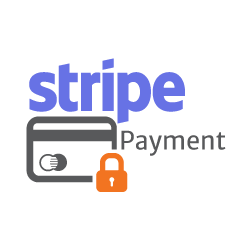Critical Elements of a Teletherapy Informed Consent Form for Psychotherapy
Informed consent ensures you and your clients are on the same page with expectations and boundaries that protect your practice, yourself, and your clients. Informed consent is important regardless of whether the session is held in person or via telehealth, but your informed consent form must include a few extra provisions beyond the standard form. Here’s what you need to know about using informed consent forms for teletherapy sessions.
Essential Elements of a Teletherapy Informed Consent Form
A teletherapy informed consent form should include all of the following:
- Identity of the client, the therapist, and the therapist’s credentials.
- The therapist’s training and/or credentials for the use of technology-assisted services.
- The services that are being provided by the therapist.
- Electronic and/or written evidence that documents the client’s consent to use technology-assisted services.
- Details regarding the electronic service delivery that will be used as well as potential risks and any ethical considerations.
- Documentation of the client’s understanding that the therapist will determine on a regular basis whether the use of technology-assisted services is appropriate for the condition being assessed or treated.
- The risks and benefits of using technology for providing treatment.
- The emergency procedures that should be followed when the therapist is not available.
- Potential privacy risks and the security measures that are taken in order to use technology-assisted services.
- Secure protocols and back-up plans that will be taken should there be a technical failure.
- Explanation of how the records will be maintained electronically including, but not limited to, the record security, encryption type, and archival storage period for transaction records.
- Notification of any passive-tracking mechanisms used and any information collected.
- Any third-party services or websites used to facilitate technology-assisted services.
If you’re using a template, be sure that it includes all of this information so that you’re covered.
Other Consent Forms You May Need for Providing Psychotherapy Services Via Telehealth
Beyond telehealth, there are a number of different informed consent forms that you may need for your practice. Here are some other forms that you may need:
Adolescent Informed Consent Form
This form documents what an adolescent client can expect from the therapy process and during sessions, and it shares the process for the formation of a treatment plan. It also shares the importance of patient confidentiality and privacy and communicates that anything discussed during sessions will not be disclosed to others without written consent. The form also outlines the exceptions where confidentiality may be broken, such as if the adolescent is doing anything, or planning to, that can cause harm to themself or others, or if they are the victim of abuse. It’s a good idea to include a section with the parent or guardian’s agreements and understandings as well for both to sign.
Couple Informed Consent Form
The couple informed consent form is used to provide guidelines for couples counseling with a therapist. This form includes what can be expected of sessions and communicates that sessions are therapeutic purposes and not intended for legal proceedings. It also speaks to confidentiality, and assures clients that anything shared during an individual session will not be shared during a couples session. It also communicates that anything disclosed will not be shared with others without written consent, unless in violation of the clinic policy or state law. And last, it lays out expectations regarding payment and insurance coverage.
Informed Consent For Clinical Consultation (Consultant-Consultee Contract)
This informed consent form is written for clinical consultations with another therapist. It states that the session is for consultative purposes only, and the consultant is not acting on a supervisory basis and is not responsible for any decisions or actions made by the therapist. The form also outlines expectations for maintaining client confidentiality for case presentations and the payment expected for services.
Informed Consent for Therapy Services – Adult
The adult informed consent form is used to outline expectations for an adult therapy session. It explains the services provided, what to expect, the cancellation policy, the cost for services provided, payment, and the use of insurance, including what information will and will not be shared with the carrier, confidentiality, and privacy practices. It also includes emergency contact information and client rights and expectations.
Informed Consent Form: Child Therapy: Separated/Divorced Parents
This form is used specifically for situations where therapy is provided to a child of separated or divorced parents. It sets parental expectations that the focus of therapy is on the child and makes clear the payment requirements. The form also provides the therapist’s expectations regarding any legal proceedings that may occur during or after the course of treatment.
Notice of Child Counseling – For Separated Parent
The Notice of Child Counseling form is used for divorced or separated parents to notify a parent that the other has brought their child for counseling and to provide an invitation to the counseling process. It provides some options for the parent to participate, including in person and by phone, and also provides the parent with the option to decline involvement.
Notice of Privacy Policies – Sample Client Handout About Limits of Confidentiality
This form outlines in detail what’s covered under patient confidentiality and the requirement for written consent for disclosure. It also makes clear the limits of confidentiality and describes when a therapist is required to disclose information. The form also outlines client rights.
With the growing popularity of telehealth, you’ll want to be sure that you and your clients are protected with informed consent. While the technology itself has an important role to play in the telehealth process, informed consent forms the foundation of a good client-therapist relationship.
See how Thera-LINK, a HIPAA-compliant telehealth platform, can help you connect effectively with your clients.







